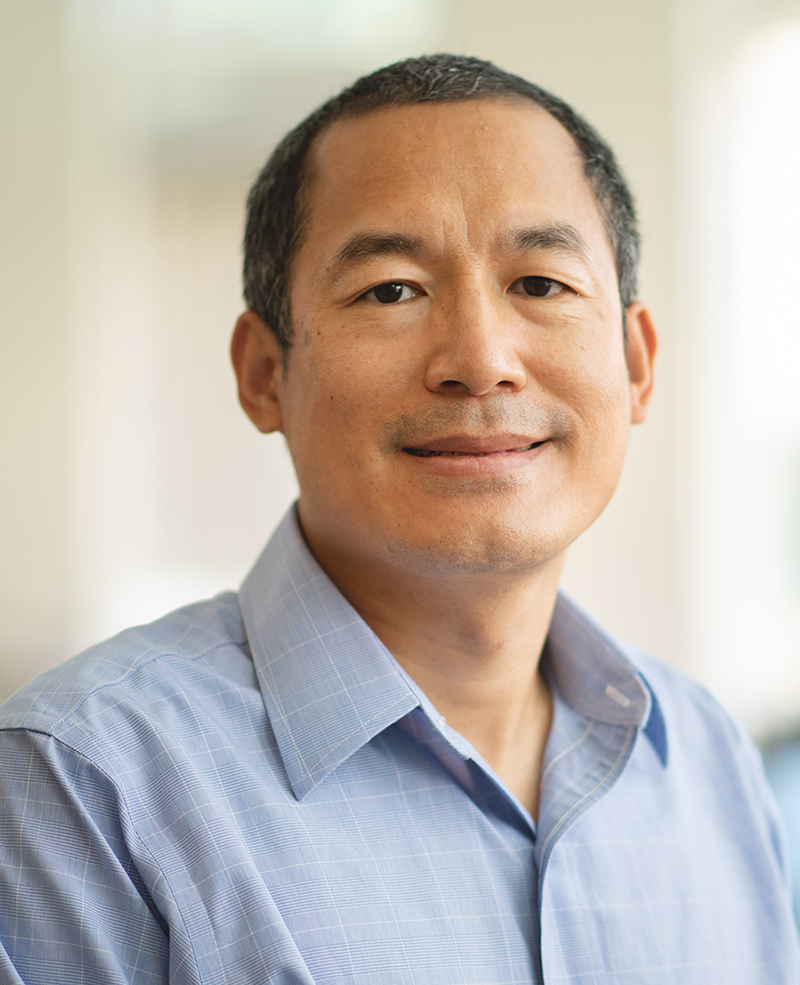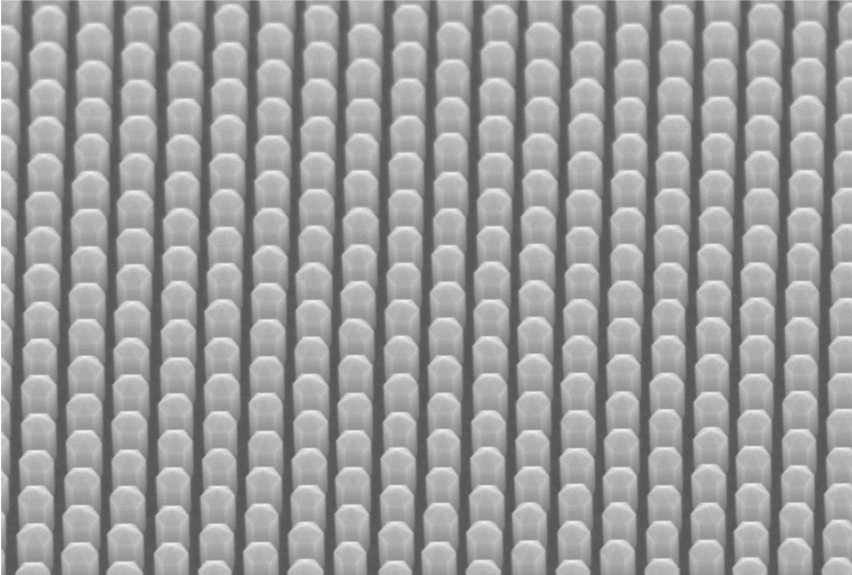Prof. Zetian Mi named IEEE Fellow for his pioneering contributions to III-nitride photonics and clean energy

Prof. Zetian Mi has been elevated to IEEE Fellow, class of 2022, “For contributions to III-nitride photonics and clean energy.”

Mi is a pioneer in III-nitride photonics, with practical applications in alternative energy sources, water and air purification and disinfection, as well as virtual/augmented reality.
Broadly speaking, his research is focused on the investigation of semiconductor nanostructures and their application in photonic, electronic, quantum, and clean energy devices and systems.
Mi has made groundbreaking advances in artificial photosynthesis, which is one of the keys to a sustainable, carbon-free, and storable source of energy. Artificial photosynthesis is the chemical transformation of sunlight, water, and carbon dioxide into hydrogen and high-energy-rich fuels. His group demonstrated some of the most efficient artificial photosynthesis processes capable of direct solar hydrogen fuel production, with a stability orders of magnitude better than some previous state-of-the-art.
In related research, Mi and his team invented new catalysts that enable the efficient conversion of CO2 to methane (a major component of natural gas) and to methanol and formic acid, which are important feedstocks in the chemical industry.
Mi has also significantly expanded the landscape of micro-LEDs through his contributions to III-nitride nanostructures and photonics. His seminal contributions have made it possible to realize high-efficiency, full-color micro/nano-LEDs, which are regarded as the cornerstone of next-generation display technology for mobile phones, virtual/augmented reality, and ultra-high-definition TVs. His innovations have been further developed and commercialized by his own start-up company, NS Nanotech, and its partners.
In addition, his inventions have advanced efficient LEDs and laser diodes operating in the mid- and deep-UV, which are the only alternative technology to replace conventional mercury and xenon lamps for water/air purification and disinfection. This technology now ranks as one of the most effective means to kill airborne coronaviruses.
Mi accomplishes his research through close collaborations not only with his research group at Michigan, but also with universities and national labs across the country. He directed a DOE project on solar hydrogen, where he collaborated with four universities and three national labs to develop solar water splitting devices and systems for hydrogen fuel production (learn more). He received a Blue Sky award from the College of Engineering to continue research in this area with 11 other faculty across the university as well as national labs. And most recently, he received a Multidisciplinary University Research Initiative (MURI) to develop a new class of semiconductors for novel artificial photosynthesis, along with three other universities (read more). His research teams have also reached the first and second rounds of ERA Grand Challenge (in 2014 and 2017), which was a $35-million (CAD) global competition to turn carbon dioxide emissions from a waste stream into valuable products.
During his career, Mi has graduated over 20 PhD students, mentored over 30 postdoctoral researchers, supervised numerous master’s students, and invited more than twenty undergraduate students to work with his group. His group has published over 600 journal and conference papers, and received over a dozen of best paper or presentation awards at international conferences.
At Michigan, Mi has taught the undergraduate course, Introduction to Semiconductor Devices and the graduate course, Electronic and Optical Properties of Semiconductors.
Mi has co-founded two companies to date, NS Nanotech, Inc. and NX Fuels, Inc. to commercialize his research. NS Nanotech launched the world’s first solid-state far-UVC chip that neutralizes Coronavirus, which was named as one of the top ten products in 2020. He has 14 U.S. patents, and many more in the works.
A leader in the professional community, Mi has co-chaired numerous meetings of the IEEE Photonics Society Summer Topicals Meeting, helped organize or lead numerous other conferences and meetings, and chaired IEEE Photonics Conference in 2020 and co-chaired the 11th International Symposium on Semiconductor Light Emitting Diodes in 2017. He is editor of Progress in Quantum Electronics and Serial Editor of Semiconductors and Semimetals.
Mi is a Fellow of OSA and SPIE. He received a Young Scientist Award from the International Symposium on Compound Semiconductors, a Young Investigator Award from the 27th North American Molecular Beam Epitaxy Conference, and a Distinguished Lecturer Award from IEEE Photonics Society.
Mi received his PhD in Applied Physics from the University of Michigan in 2006. He was advised by Prof. Pallab Bhattacharya. After serving as a faculty member at McGill University in Canada, he joined the Department in 2016.
 MENU
MENU 
